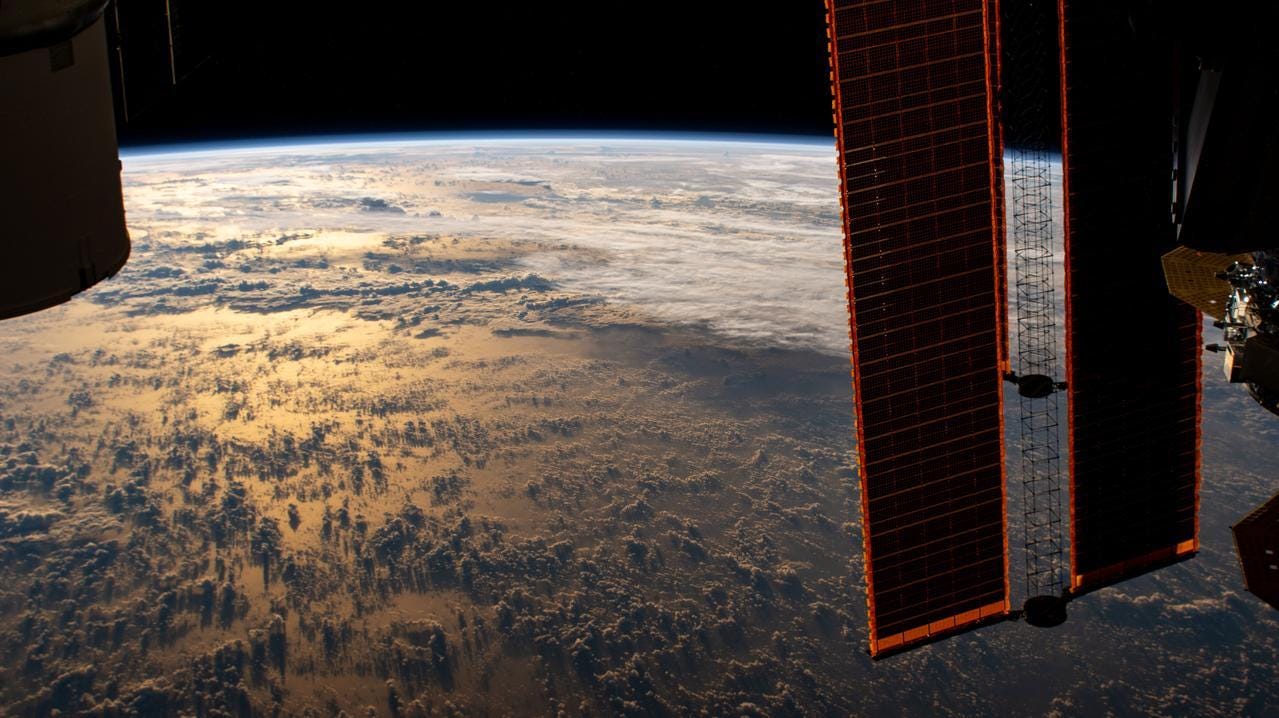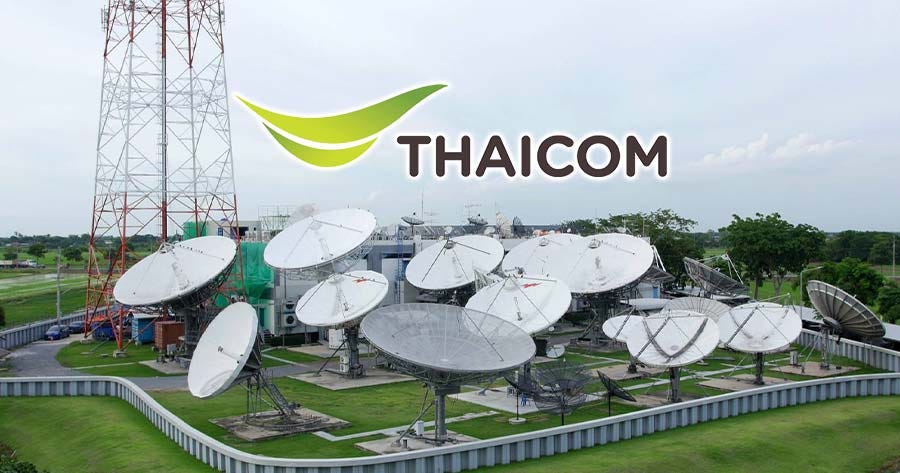Southeast Asia Space Roundup: 5 to 11 December 2024
A summary of all the space news in Southeast Asia over the past week, brought to you by AzurX
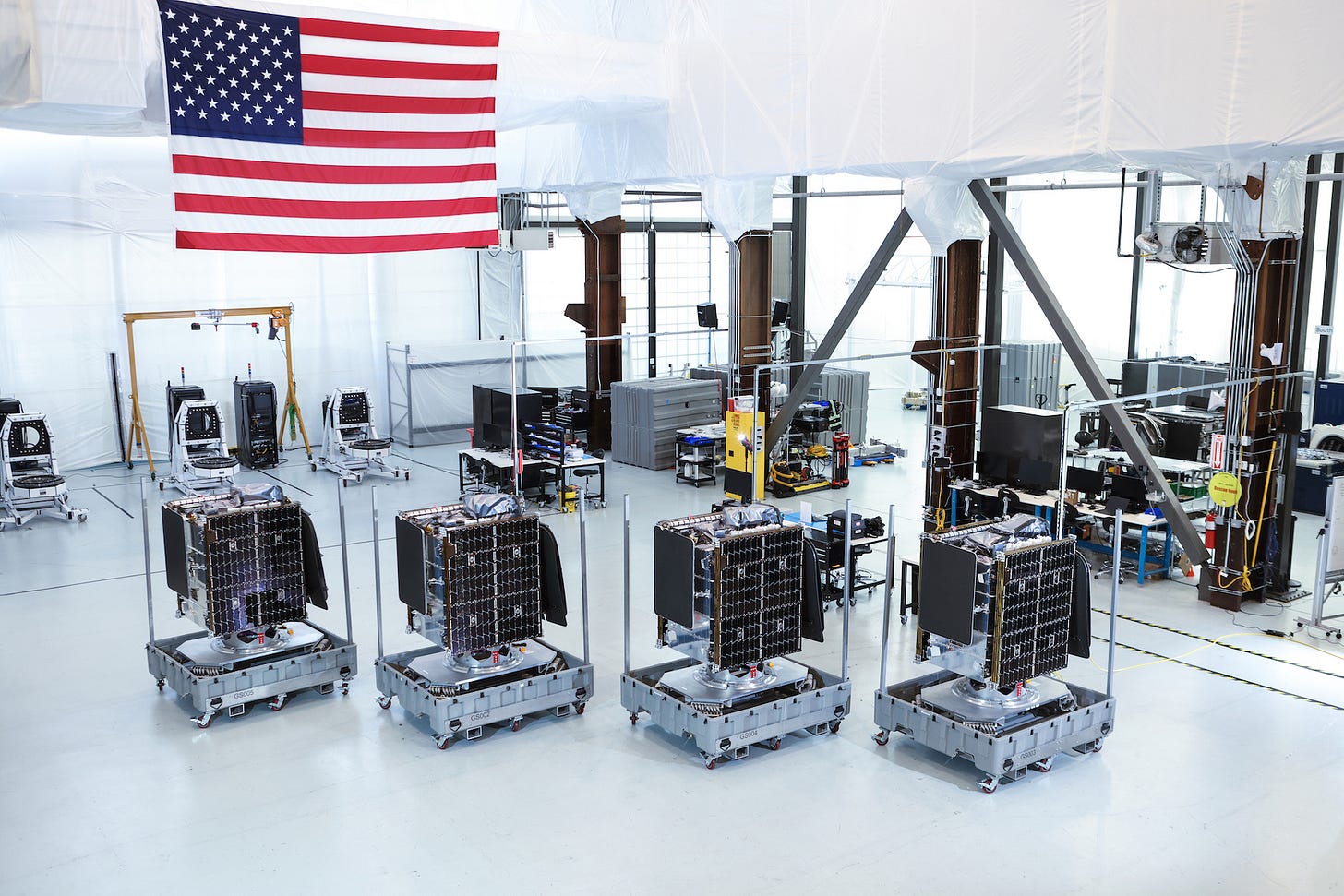
The following are the major space developments in the Southeast Asian region tracked by Southeast Asia Space Monitor over the past week:
Philippines Space Developments
Philippines First GEO Communications Satellite to be Launched on 17 December
Astranis is set to launch four of its MicroGEO satellites aboard SpaceX's Falcon 9 rocket on 17 December 2024, marking a significant milestone for the company. The satellites will serve various customers, including Anuvu, with two satellites (NuView Alpha and NuView Bravo) dedicated to providing in-flight connectivity, and Orbits Corp., with AGILA, the first satellite dedicated to the Philippines. Additionally, UtilitySat, a multi-mission satellite, will serve Mexico’s APCO Networks and other undisclosed clients. This launch follows an earlier setback with Astranis' first MicroGEO satellite in April 2023, which faced a solar array issue. With improvements such as a new electric propulsion thruster gimbal, enhanced main reflector, and increased redundancy in software, these satellites promise higher capacity and affordability. This mission is notable for being the first time a single satellite manufacturer has launched four satellites together to geostationary orbit (GEO).
Philippines Calls for Greater Space Policy Cooperation in Asia-Pacific
At the Indo-Pacific Space and Earth Conference (IPSEC) in Perth, Australia, leaders from the Asia-Pacific and Indo-Pacific regions emphasised the central role of space policy in addressing shared regional challenges, such as climate change, disaster management, and resource management. Dr. Gay Jane Perez of the Philippines Space Agency and Dr. Cassandra Steer of the Australian Centre for Space Governance highlighted the need for enhanced civil space cooperation and data sharing, particularly for improving resilience and fostering sustainable development. Collaborative space initiatives, such as the Asia-Pacific Regional Space Agency Forum (APRSAF) and Japan’s $2 billion fund for innovative space programmes, demonstrate the region’s commitment to peaceful and mutually beneficial partnerships. With geopolitical tensions rising, the region must prioritise regional space ecosystem development and policies that focus on the societal benefits of space, ensuring that all countries, including those without space agencies, are included in the collective effort to address pressing issues.
Philippine Space Agency Hosts Training Course on Downstream Data Utilisation
The Philippine Space Agency (PhilSA) successfully concluded the pilot implementation of its Training Course on Downstream Data Utilization from 25 to 29 November 2024 in Quezon City. This programme, aimed at educators, researchers, and professionals in space science and technology applications (SSTA), provided 30 participants with in-depth knowledge of remote sensing (RS) and Geographic Information Systems (GIS). Key topics included digital image processing, spatial data analysis, and the application of RS and GIS for environmental monitoring and disaster risk reduction. Participants engaged in hands-on exercises, such as flood mapping and forest monitoring using tools like Google Earth Engine and QGIS. The course culminated in the creation of a flood susceptibility map for Central Luzon and an action plan to address local challenges, demonstrating the practical value of satellite data for decision-making. This initiative is part of PhilSA’s Space Education and Awareness Program (SEAP), which seeks to empower Filipino professionals and integrate space technology applications into various sectors, with plans for nationwide expansion in the future.
Thailand Space News
Thailand’s Thaicom Receives Authorisation to Provide SATCOM Services in India
Thaicom, Thailand’s premier commercial satellite operator, saw a 5.84% increase in its share price to THB14.50 ($0.43) per share following the announcement that its subsidiary, IPSTAR India, has been authorised by the Indian National Space Promotion and Authorization Center (IN-SPACe) to provide satellite services over Thaicom satellites. The authorisation allows IPSTAR India to utilise existing Thaicom satellites, including Thaicom-4 and Thaicom-8, and the upcoming Thaicom-9 satellite, set to launch in 2025. This development aligns with India’s new space policy and will enable Thaicom to offer broadband satellite solutions, particularly targeting underserved rural areas, and contribute to bridging the digital divide. Thaicom has been serving the Indian market since 1997 and sees this as a significant milestone in its long-term commitment to meeting India's growing demand for broadband connectivity.
Thailand: Space Law as of 2024
Thailand's draft Space Activities Act is a comprehensive effort to regulate the country's space sector, addressing activities such as satellite registration, space activity management, and handling space-related accidents. While various government agencies like the Geo-Informatics and Space Technology Development Agency (GISTDA) and the National Broadcasting and Telecommunications Commission (NBTC) oversee space-related matters, the Draft Act aims to establish a centralised and cohesive legal framework for space activities. The Act seeks to align Thailand with international treaties such as the 1967 Outer Space Treaty, while also fostering economic growth through space-related industries, which are strategically identified as part of the country's New S-Curve industries. With a robust regulatory structure in place, the Act outlines licensing requirements for space activities and objects, provides for government liability in cases of space-related damage, and focuses on sustainability, including space debris management. It further empowers the National Space Policy Committee (NSPC) and the National Space Agency (NSA) to regulate space affairs, ensuring both national and international compliance and facilitating Thailand’s growing role in the global space sector.
Malaysia Space Developments
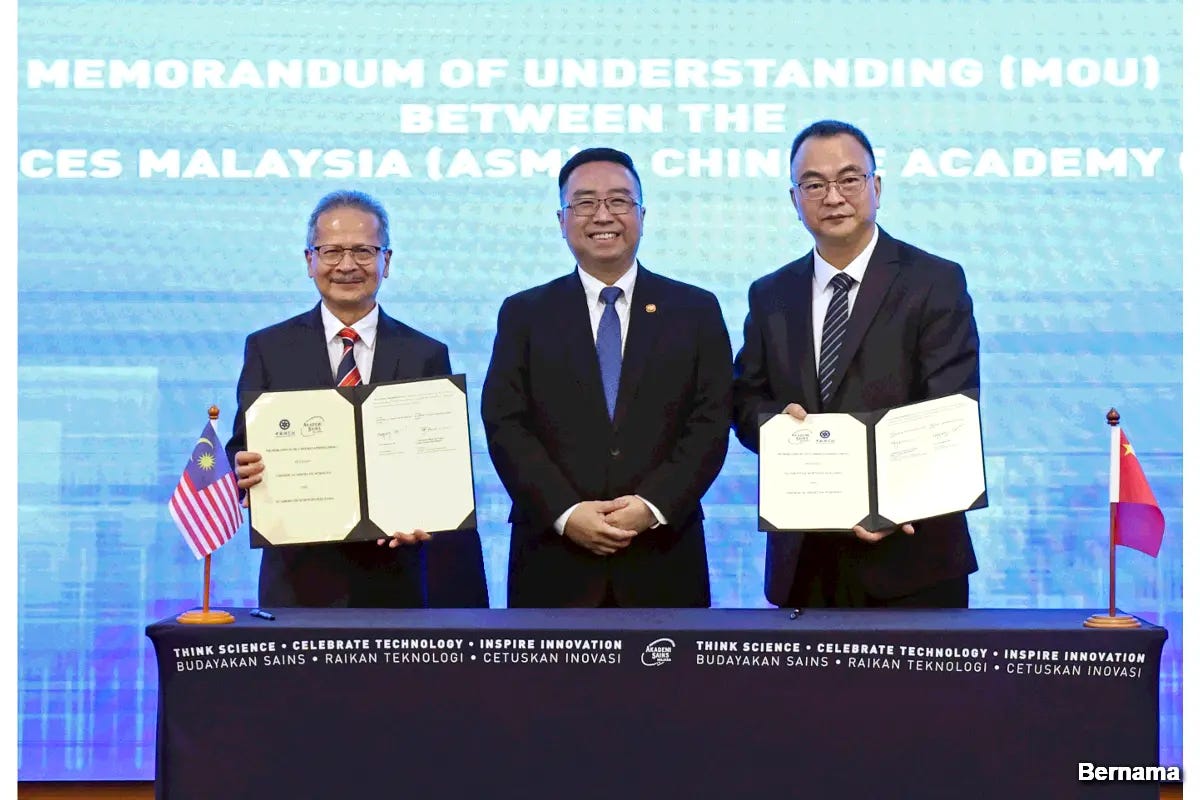
Malaysia and China Science Academies Partner on Space Technology Research
Malaysia has reaffirmed its commitment to enhancing collaboration with China in science, technology, and innovation (STI) through a newly signed Memorandum of Understanding (MOU) between the Academy of Sciences Malaysia (ASM) and the Chinese Academy of Sciences (CAS). This partnership, which builds upon a 1999 agreement, aims to expand research initiatives in key fields such as energy storage, human vaccines, space technology, artificial intelligence (AI), blockchain, neurotechnology, agriculture, and renewable energy. Under the second batch of the Strategic Research Fund–Request for Proposal (SRF-RFP) for 2025, both countries plan to explore joint mission-oriented research and development (R&D) projects with potential matching grants through the Malaysia Science Endowment (MSE). This initiative highlights the strengthening of bilateral ties and the shared vision of leveraging scientific advancements for global challenges, with a focus on promoting knowledge exchange and international cooperation in addressing pressing technological needs.
Between BRICS and the U.S.: Malaysia’s Satellite Sector Navigates Geopolitical Landscape
The global satellite and telecommunications landscape is being reshaped by geopolitical shifts, with the BRICS alliance pushing for technological sovereignty and the potential resurgence of Trump-era protectionist policies in the United States. The BRICS countries—Brazil, Russia, India, China, and South Africa—are investing heavily in satellite systems, local manufacturing, and data sovereignty, aiming to challenge Western players like SpaceX’s Starlink and reduce reliance on foreign technology. This has significant implications for Malaysia, which is emerging as a key player in the Southeast Asian telecom and satellite sectors. Malaysia must navigate the competition between BRICS and U.S.-aligned countries, addressing potential supply chain disruptions, especially in the 5G space, and aligning with one bloc or maintaining neutrality. The demand for regional satellite services could benefit Malaysian companies like MEASAT, but compliance with varying data sovereignty laws will be crucial. As the market becomes increasingly polarised, Malaysia’s strategic position offers opportunities for growth through regional cooperation and innovation, provided it can adapt to the evolving global competition.
Other Regional Space News
Police in India Seeks Answers From Starlink in $4.2 Billion Myanmar Drug Bust
Indian authorities have issued a legal notice to Elon Musk's Starlink, requesting details on the purchaser of its satellite internet device used by smugglers to navigate while transporting a record haul of methamphetamine worth approximately $4.2 billion. The notice, sent by police in the Andaman and Nicobar Islands, seeks information on the buyer’s identity, payment method, and the device's usage location during the illegal journey from Myanmar to India. This marks the first known use of Starlink's technology in such a major drug seizure, raising concerns about its security implications as the company seeks approval to launch its satellite broadband services in India. The investigation into the drug haul, which involved the seizure of over 6,000kg of meth, comes amid Starlink’s efforts to navigate regulatory challenges in India, including a recent spectrum dispute with billionaire Mukesh Ambani.
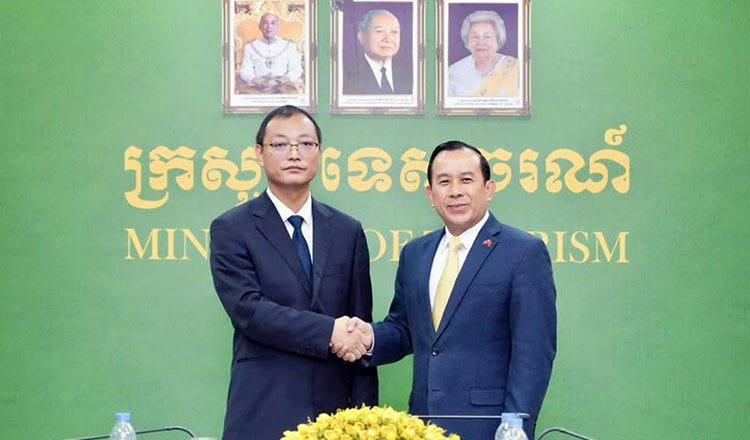
Cambodia to Use Chinese Satellite Imagery for Revitalising Tourism
Cambodia is exploring a partnership with Maiku Information Technology Co. Ltd., a leading Chinese tech firm, to leverage Big Data and AI in revitalising its tourism sector, a crucial contributor to the country's economy. During a recent meeting between Tourism Minister Huot Hak and Maiku Chairman Li Tao, the two discussed utilising Maiku’s advanced tourism management system, which integrates AI, Big Data, and satellite imagery. This system, known as Tourism One-Map, tracks tourist spending, hotel availability, and other key metrics, offering real-time data to optimise operations. The technology, already used by various Chinese provinces and universities, aims to streamline Cambodia’s tourism industry, which is recovering from the impact of COVID-19. With tourism contributing significantly to GDP, Cambodia is focusing on smart technologies to manage costs, draft business plans, and formulate effective strategies for sustainable growth, positioning tourism as a key pillar of its economic recovery.
Be sure to catch up with space activities in the region in the next edition of Southeast Asia Space Monitor’s space roundup!




